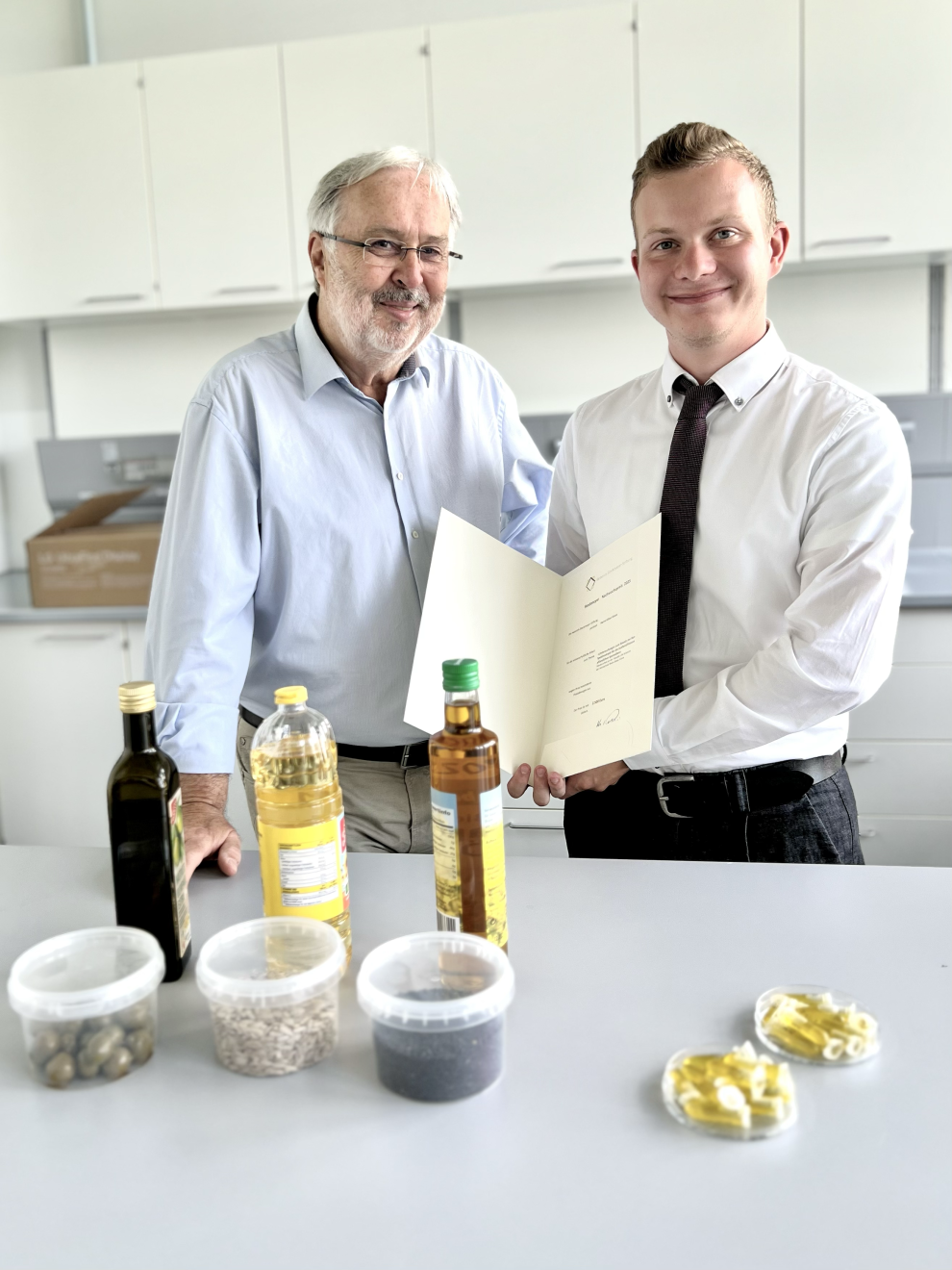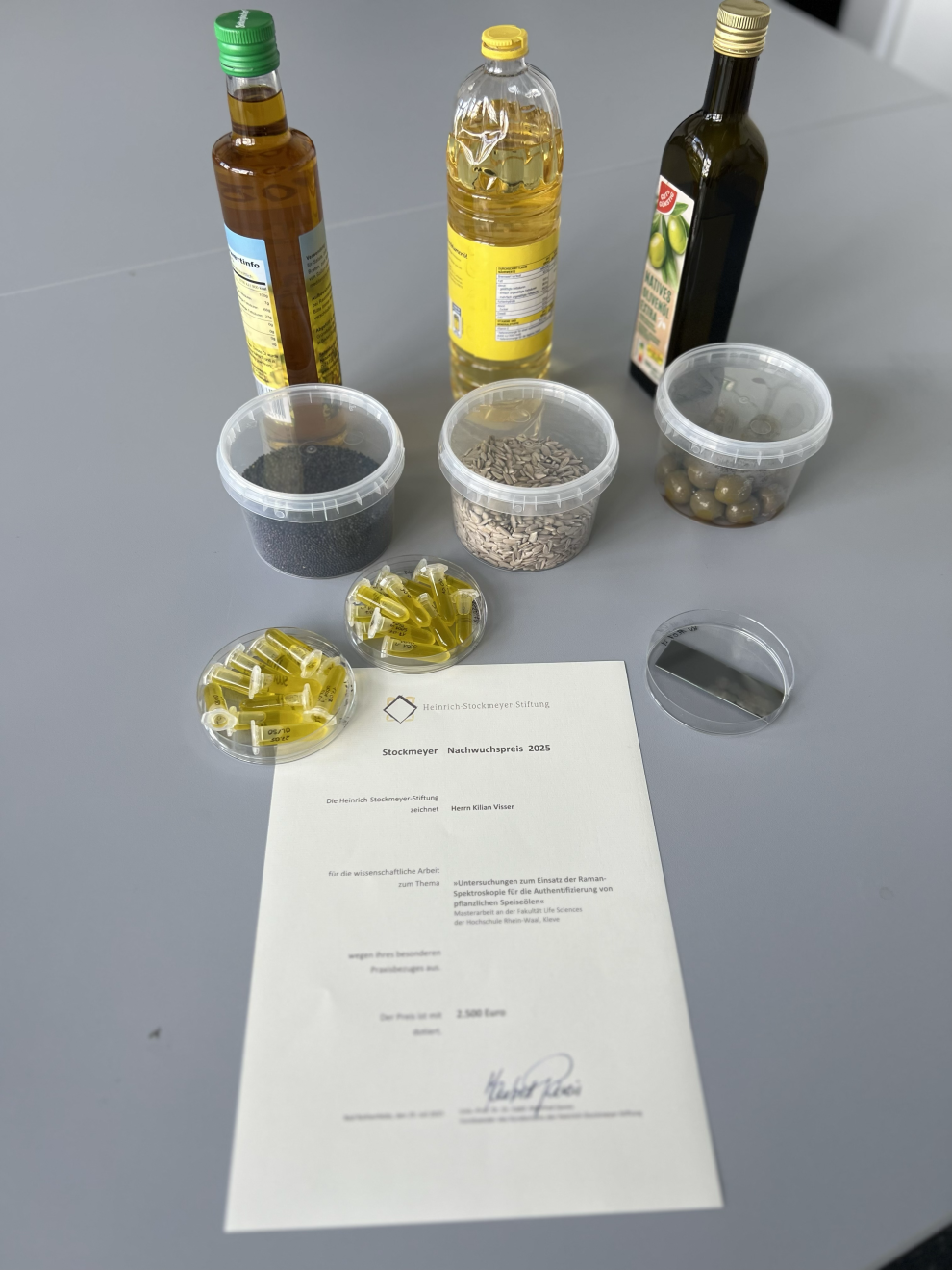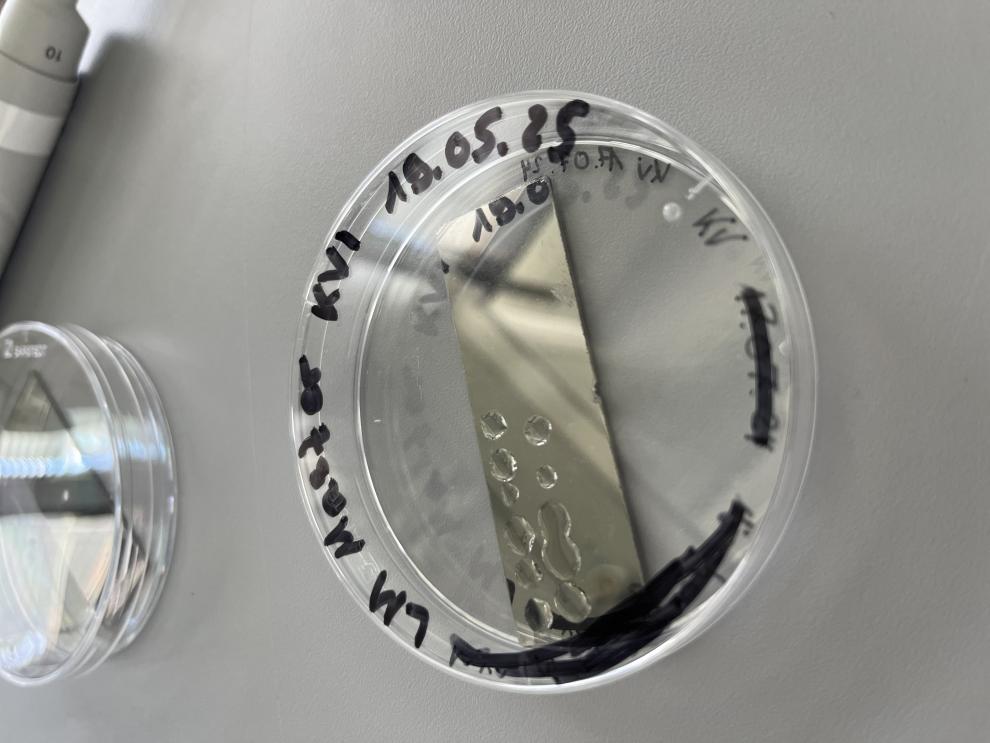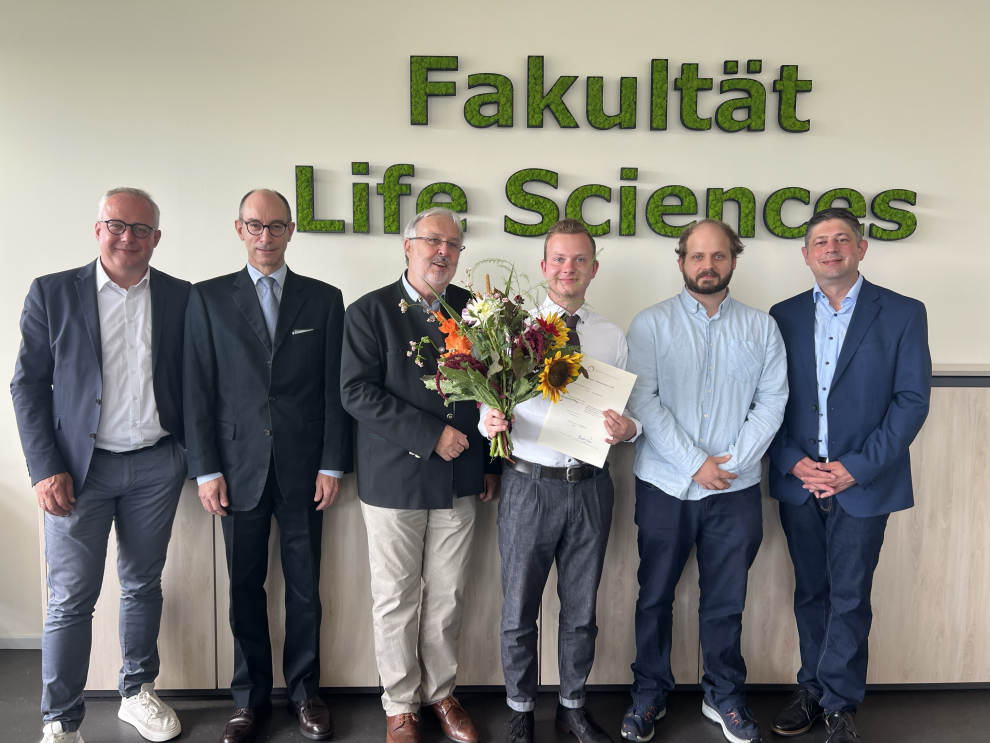The drop of truth in cooking oil
Graduate of the Master's degree programme in Food Science at Rhine-Waal University of Applied Sciences receives award for method to detect adulteration of cooking oil.
It is a scam that often goes unnoticed and yet has a system: The stretching of high-quality olive oil with cheaper vegetable oils such as sunflower oil. The damage is not only economic, it also undermines trust in one of our most basic goods.
A young scientist at the Rhine-Waal University of Applied Sciences in Kleve has now declared war on this problem. On July 29, 2025, Kilian Visser from the Faculty of Life Sciences at the Rhine-Waal University of Applied Sciences in Kleve received the Heinrich Stockmeyer Foundation's young talent award, endowed with 2,500 euros, for his master's thesis. The award was presented by Prof. Dr. Dr. habil. Manfred Gareis, the chairman of the foundation's board of trustees, who traveled from Bavaria specifically to underscore the foundation's personal commitment.
"Successes are most beautiful when they are also recognized," emphasized Prof. Dr. Peter Scholz, Dean of the Faculty of Life Sciences, and thanked the foundation for "building the future." At the heart of the award-winning work is a problem of great economic significance. "In Europe, olive oil is a food that is very often and very frequently adulterated," explained award winner Kilian Visser. To address this problem, Visser investigated the potential of Raman spectroscopy in his master's thesis, which was supervised by Prof. Dr. Florian Kugler, Professor for Food Science and Technology and head of the Master's program in Food Sciences, as well as Thomas Tewes, a research associate and doctoral candidate at the Faculty of Life Sciences. Using a confocal Raman microscope, he recorded the chemical fingerprints of a total of 27 edible oil samples from a selection of 15 different types of oil, creating a database of around 1,800 Raman spectra.
He paid particular attention to the practical relevance. Among other things, he investigated the effects of a slightly altered focusing of the laser within the edible oil samples, measured in drop form, on the measurement result. The actual innovation lies in the data analysis: Kilian Visser combined established multivariate methods with modern machine learning techniques. The result is a method that, even in practical validation, can reliably detect adulterations of extra virgin olive oil with refined sunflower oil with very high precision, even at a concentration of only 0.25%. The measurements themselves take only a few seconds. "It is practice-oriented, it has a high degree of scientific rigor, and it is presented in a well-founded manner," praised Prof. Gareis for the work, which the board of trustees unanimously deemed worthy of the prize.
For Kilian Visser, who has remained loyal to the university, this brings things full circle: After his bachelor's degree in "Quality, Environment, Safety and Hygiene" and the subsequent master's degree in "Food Sciences" at the Faculty of Life Sciences, he is now a research associate in the food science department there. He sees great potential in the method and considers it "quite conceivable" that it will also be transferred to portable systems in the future to enable on-site measurements. Such a development could reshuffle the cards in the fight against food fraud and sustainably strengthen consumer confidence.




